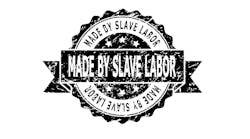The concern in the workplace used to be office politics. Who was the favorite? Who was out of favor? Who got the best view, the biggest office, the cubicle next to the bathroom?
Now, some managers are wondering if the politics will ever end, and they’re not talking office politics. Loud, disruptive and divisive political debate has invaded some workplaces, with offices becoming partisan battlegrounds as many of us continue to fixate on what’s going on in Washington.
“The dust from the last presidential campaign hasn’t shown any signs of settling, and that means office managers are finding themselves in the middle of a less-than-cordial workplace,” says corporate management consultant Amanda Mitchell.
“It’s hard to get any work done with your staff too busy arguing with each other about the latest executive order, fixating on news headlines and policy decisions or engaging in ‘what if’ scenarios,” she says.
Mitchell has come up with these management strategies to deal with disruptive politics at work:
Stay out of it – The Swiss have the right idea, says Mitchell. “Stay neutral. The last thing a manager should do is get into the middle of a political knock-down, drag-out debate among workers.”
Find common ground – Help coworkers channel all of that political passion into job tasks while reminding them that you expect them to respect others in the work setting. “Challenge them to find common ground and help them redirect all that political passion on the task at hand,” says Mitchell. “A busy staff is a happier staff, so keep the workflow steady, and focus energies on a new project or client.”
Turn off the noise – It’s hard for passionate politicos – no matter their job title – to focus on work if they’re bombarded with 24/7 news headlines via their smartphone or laptop. “It’s natural that staff’s concerns about what’s going on outside of workplace spills into their work life,” says Mitchell, so management might consider a few distractions, like a team-building seminar or employee recognition lunch.
It’s not personal, it’s business – If you’ve identified one staffer who can’t stop watching that internet newsfeed and who stirs up the political pot by trying to engage others, it’s time to take direct action. Speak privately with the staffer and help him or her understand that while staying connected is not necessarily bad, it means he or she is not paying attention to what has direct and immediate relevance to the work. It’s hard to get ahead if your job is a distraction.
Shift into problem-solving mode – People are hired to solve problems, but with all the political drama, an inability to focus makes it impossible to do so. Worrying not only doesn’t solve the problem, it makes it much more difficult to contribute productively in other ways. Keep all eyes on the prize: the new product, the new contract, the new client.
Hold workers to higher standards – Obsessing over the direction of the country or the actions (or inactions) of our national leaders can leave anyone feeling overwhelmed and speculating about issues/situations that are difficult, if not impossible, to resolve or to answer.
This futile, out-of-control thinking gets us nowhere,” says Mitchell. “We usually react to being overwhelmed by becoming frantically busy, by procrastinating, or by inefficiency, all of which work against delivering on high standards. Pointing this out gives a powerful, personally-relevant reason for focusing.”
This article was originally published on EHS Today, a companion site of Material Handling & Logistics and part of Penton's Manufacturing & Supply Chain group.



